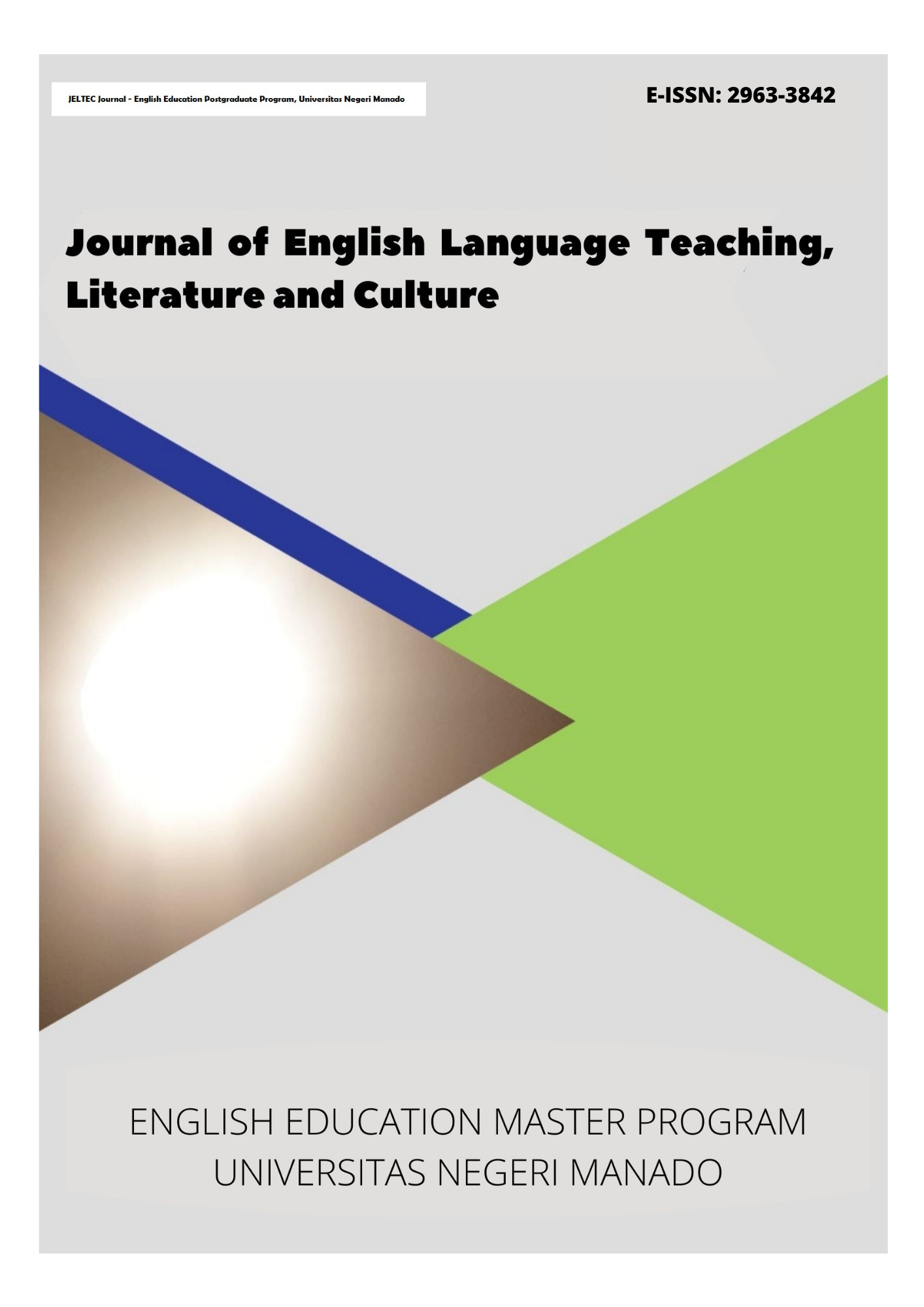Pain Pleasure Principle in Joy Harjo s Poetry: The Foundation of Personal Choices and Identity
DOI:
https://doi.org/10.53682/jeltec.v3i1.7987Keywords:
Postcolonial; Pain; Pleasure; IdentityAbstract
This article examines Joy Harjo journey the renowned poet and musician has navigated a tumultuous life filled with pain and adversity The pain pleasure principle is a fundamental aspect of human decision making Beliefs values actions and decisions are all shaped by this principle but it is crucial to examine them critically through a postcolonial lens to better understand the power dynamics and social structures that influence our interpretation of pain and pleasure A lot of studies have been conducted on Indigenous literature but very little has delved into the exploration of pain and pleasure specifically in the works of Joy Harjo However the current study argues that when examining Indigenous literature it is essential to approach it through the lens of post colonial theory and consider concepts such as identity hegemony and hybridity in order to fully understand the hidden motives behind these literary works In her literature Harjo s poetry serves as a testament to the transformative nature of language and its ability to heal Harjo s work particularly her book Conflict Resolution for Holy Beings emphasizes the importance of language in bridging cultural and linguistic gaps Joy Harjo literature reflects the pleasure serves as a driving force in our lives motivating us to make certain choices and take specific actions These choices and actions in turn shape our individuality and help us develop a unique identity The study stresses on Pain pleasure principle that plays a crucial role in Indian American literature particularly evident in the works of Joy Harjo< em>< p>
References
Bradley D 2020 We are all haunted: Cultural understanding and the paradox of trauma Philosophy of Music Education Review 28 1 4 23
Chaudhary N Misra G Bansal P Valsiner J Singh T 2022 Making sense of culture for the psychological sciences Review of General Psychology 26 4 399 415
Diabate N 2020 Nudity and Pleasure Nka: Journal of Contemporary African Art 2020 46 152 166
King L J 2020 Black history is not American history: Toward a framework of Black historical consciousness Social Education 84 6 335 341
Krivokapi M 2021 Reclaiming Home in Indigenous Women Poetry of North America American Studies in Scandinavia 53 1 65 94
Kuppers P 2022 Eco Soma: Pain and joy in speculative performance encounters U of Minnesota Press
Nguyen Truong C K Y Waters S F Richardson M Barrow N Seia J Etic D U Rodela K F 2023 An Antiracism Community Based Participatory Research with Organizations Serving Immigrant and Marginalized Communities Asian Pacific Island Nursing Journal 7 e43150
Aza edo C M Artola T Sastre S Alvarado J M 2021 Character strengths predict subjective well being psychological well being and psychopathological symptoms over and above functional social support Frontiers in psychology 12 661278
Ghasemi B 2021 Trophy hunting and conservation: Do the major ethical theories converge in opposition to trophy hunting? People and nature 3 1 77 87
Sykes B E Pendley J Deacon Z 2017 Transformative learning tribal membership and cultural restoration Gateways: International Journal of Community Research and Engagement 10 204 228
Daniels B Sterzuk A 2022 Indigenous Language Revitalization and Applied Linguistics: Conceptualizing an Ethical Space of Engagement Between Academic Fields Canadian Journal of Applied Linguistics 25 1 1 18
Nicholls H 2010 The Cosmopolite Indian: History Geography and Multiplicity Student Anthropologist 2 1 23 30
Brewer II J P Stock P V 2016 Beyond extension: Strengthening the federally recognized tribal extension program Canadian Journal of Applied Linguistics 6 3 91 101
Goodnight E 2017 William Apess Pequot Pastor: A Native American Revisioning of Christian Nationalism in the Early Republic Religions 8 2 18
Rahayu M 2022 The New Image of Indian Girl in Sherman Alexie s Journal of Language and Literature 22 2 422 434






